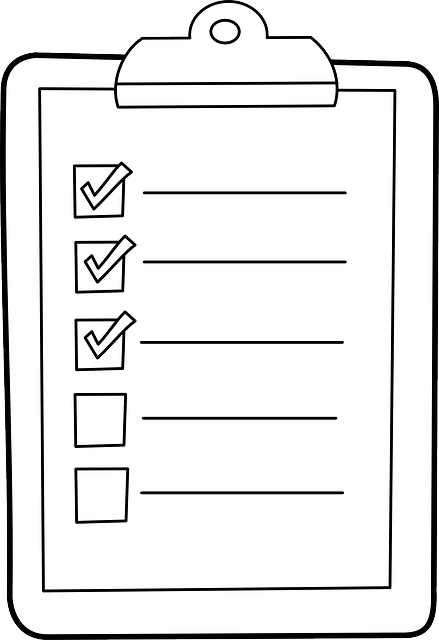I try to use systems in all areas of my life. Systems automate routine tasks that lead to important outcomes. Systems maximize consistency and minimize time and energy. Systems allow us to focus more on the outcome than the routine tasks that get us there. In business, these systems can take the form of processes. Accounting is a business function particularly conducive to structured processes. The value in accounting comes with the ability to analyze timely and accurate numbers that your processes generate and not in the processes themselves.
Of course, all large business have complex accounting software and processes to make sure their transactions are recorded accurately and their financial statements prepared timely.
I will focus on on 4 ways freelancers and small business owners can automate their accounting:
1. Use checklists
The less you have to think about routine tasks, the more brainpower is freed up for more important activities. Checklists are a great way to minimize the thinking required.
Checklists can be used for any repetitive task, which includes most of the activities a business engages in. Examples include:
- Onboarding a new employee
- Setting up a new vendor
- Setting up a new customer
- Closing the store or restaurant at night
- Preparing an order for shipment
Checklists are especially helpful in nailing the month-end end accounting close, which brings me to my next point…
2. Nail your month-end close
"Month-end close” or the “financial statement close process” might sound like a complicated activity that only big companies worry about, but it simply refers to the activities that provide accurate financials after the end of a month.
The sooner you can get financial statements after the end of the month, and the more accurate those financials are, the better decisions you will be able to make.
This process should be so well defined and refined that it’s automatic. It doesn’t mean smart and skilled people aren’t required to carry out the system, but it means these people don’t have to figure out the process every month. Instead, they can use their valuable time and brainpower to analyze the financials and identify areas for improving the business.
Checklists in a Google Sheet have worked well for me. A tab lists all the tasks required to close out month end, when each task needs to be done, and who is responsible for each. Those responsible sign off on each task, giving me a real-time status.
Setting up bank feeds helps to automate month end. Most accounting software packages, such as Xero and Quickbooks Online, connect directly to bank accounts and credit cards and download new transactions every day. Bookkeepers only have to assign the correct account code to each transaction before reconciling the account.
Software that doesn’t support bank feeds should at least support transaction import, which allows you to download the transactions from your bank account and import the downloaded file into your accounting software.
3. Use dashboards and scheduled reports
It’s good to review a full set of financial statements monthly, but you’ll often need information sooner to make decisions. While it’s not practical to perform the full accounting process more than monthly, important transactions such as sales should be recorded in real time.
As a business owner, you should have access to as much real-time information as possible. Some accounting software will email you reports on a set schedule. For example, for one company I get a daily automated email with customer payments received, new orders received, and orders shipped. This allows me to keep a daily pulse on the business.
4. Outsource your bookkeeping
It doesn’t make sense for many freelancers and small businesses to hire full-time bookkeepers. In some small businesses, employees wear multiple hats, and the office manager, for example, may double as a bookkeeper. This may work out okay if you have team members with sufficient time and are comfortable with bookkeeping.
However, in most cases it’s better to outsource your bookkeeping. This allows you to hire for specific skills needed to add value to your business. You can outsource to accounting firms, but this is often quite expensive. I recommend finding offshore bookkeepers though a service like Elance.
All of the companies I work with have used offshore bookkeepers for several years, and it works great. We pay between $6 and $12 per hour, depending on the complexity, and the bookkeepers are accurate and dependable. For example, we forward any invoices we receive, and they do the accounting software entry and file the digital copy. They also complete most of the month-end checklist.
Automate Your Business
Accounting is an obvious candidate for automation, but you can automate any area of your business. It can help to recognize anything that is done on a regular basis and think about how it can be automated.
Question: What other tips do you have for automating accounting?

